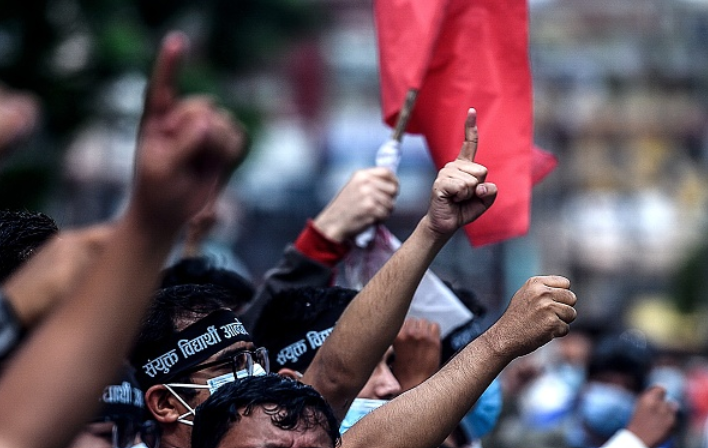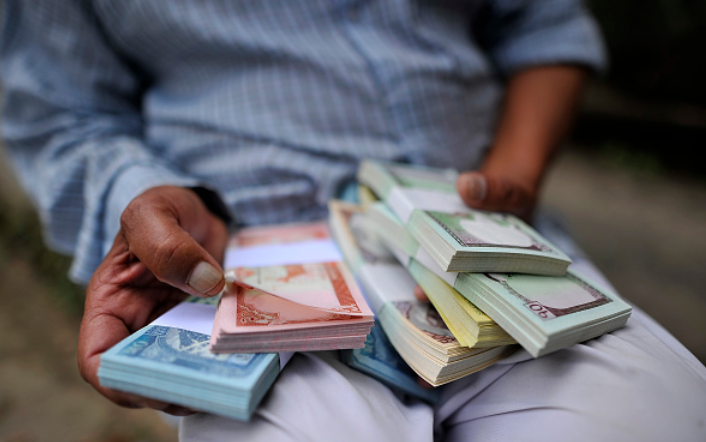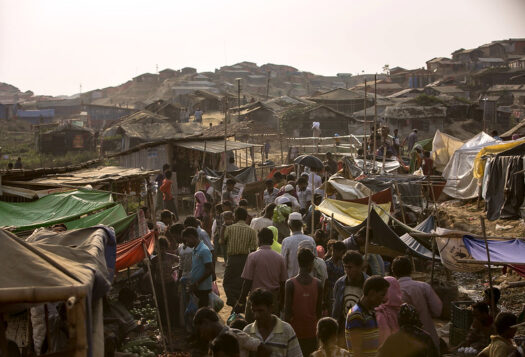
In recent months, a high-profile corruption case has gripped Nepal, incriminating high-ranking politicians, former ministers, senior bureaucrats, human rights activists, and a slew of intermediaries. According to the case, the accused fraudulently identified Nepali citizens as Bhutanese refugees, collecting extensive bribes in exchange for promises of resettlement in the United States and other countries. The scheme has exposed the vast criminality within Nepal’s ruling bureaucracy and political circles and endangered Nepal’s fragile democratic institutions.
The Current Allegations
The origins of the scandal can be traced to the 1990s when 120,000 Bhutanese of Nepali origin were expelled from Bhutan and resettled as refugees in eastern Nepal under the aegis of the Nepali government and the United Nations High Commission for Refugees (UNHCR). After negotiations to repatriate the refugees failed, officials arranged for more than 100,000 refugees to be resettled in the United States, Australia, Canada, Denmark, New Zealand, Norway, and the UK, while around 6,000 Bhutanese refugees remained in Nepal. The legacy of the 1990s resettlement schemes lent credence to this year’s scam.
The scheme has exposed the vast criminality within Nepal’s ruling bureaucracy and political circles and endangered Nepal’s fragile democratic institutions.
The current corruption scheme came into light after more than 100 people publicly accused officials of fraudulently soliciting payment for what they represented as guaranteed resettlement in the United States. The 100 victims claim to have paid over USD $2 million in bribes. The total amount collected by the accused officials and elites could be much higher. Nepal police estimate that over 13,000 people were sent abroad fraudulently by the scam.
To date, the Nepal police have lodged cases against 33 individuals on charges of fraud, organized crime, and even treason, including senior leaders of multiple political parties, former and sitting bureaucrats, and several “agents” and professionals suspected of facilitating the scam. However, the public suspects that corruption will allow high-profile perpetrators to escape punishment even as the court has ordered the accused to be held in custody during the trial. Nepal’s elites and politically powerful actors are known to influence investigations and the judiciary in their favor.
Meanwhile, the media is rife with allegations of involvement by other prominent political figures, including spouses of a former prime minister and former home minister, who are also sitting parliament members. Media outlets have called officials to investigate the role of the chief of police, which is closely linked with the accused home minister and the head of Nepal’s anti-corruption body. Despite this fallout, senior party leaders have been uncharacteristically silent on the issue and instead hosted an unprecedented number of closed-door meetings since the scandal broke out, exacerbating public suspicion.
Kleptocracy in Nepal
This scandal captures the multifaceted nature of kleptocracy: systemic transnational corruption that involves political, business, or criminal elites whom professional intermediaries support to enrich themselves or further their political objectives. Recent years have witnessed alarming developments in Nepal, where powerful political actors have brazenly attempted to interfere with criminal investigations undermining national institutions and the rule of law. For example, a finance minister blatantly attempted to influence money laundering investigations led by Nepal’s Central Bank upon tip-off by the Financial Crimes Enforcement Network (FinCEN), a U.S. government agency under the Department of Treasury. According to media reports, the then finance minister allegedly pressured the central bank governor to unfreeze more than USD $3 million transferred from the United States to several bank accounts of one individual in Nepal and suspended the governor, accusing him of leaking sensitive information after the governor refused to do so. The Supreme Court later reinstated the governor.

Kleptocracy is not just limited to authoritarian regimes—Nepal’s nascent democracy is rife with corruption which must be actively countered. Countries like Nepal remain susceptible to kleptocratic entrenchment as their democratic institutions are not strong enough to resist the onslaught of modern-day kleptocratic tactics, and their political parties are yet to adopt and adhere to democratic values fully. In countries where democracy is still in the process of consolidation, initiatives to enhance transparency and strengthen rule of law are urgently needed.
Securing Rule of Law Going Forward
How can the Nepalese authorities show their commitment to addressing not just this immediate scandal but the broader problems of corruption in their system? Political parties should start by implementing major reforms and adopting transparency and accountability measures to regain people’s trust. The perception that the political parties are central to every corruption scandal must be dispelled. To do so, the Nepal government must enhance transparency and accountability measures by improving access to information and communications with the citizens, particularly when it involves political appointments. Collective action from partners inside and outside Nepal will be crucial to strengthening civil society and independent media so that they can expose corruption.
Collective action from partners inside and outside Nepal will be crucial to strengthening civil society and independent media so that they can expose corruption.
The international community, particularly the United States, has a vital role in encouraging Nepalese authorities to ensure that the investigation into the resettlement scandal is rigorous, that justice is served, and that all involved are brought to justice. The encouragement should be complemented by continuous support to both demand and supply side actors for democratic institution building and strengthening democratic values. The United States can remind Nepal of its commitment to fighting corruption and building a resilient democracy constructed during the last two editions of the Summit for Democracy.
The United States and other development partners should stop viewing kleptocracy just as a product of authoritarian regimes and recognize that it is a global phenomenon that is also gripping fledgling democracies worldwide, including in South Asia. There needs to be renewed focus on strengthening the capacities of countries like Nepal to consolidate their democratic institutions. A corrupt democracy with weak and vulnerable institutions prone to exploitation by kleptocratic actors in the Indo-Pacific region is neither in the interest of Nepal nor the United States.
Also Read: Before Nepal Graduates to a Developing Country
***
Image 1: Prakash Mathema/AFP via Getty Images


